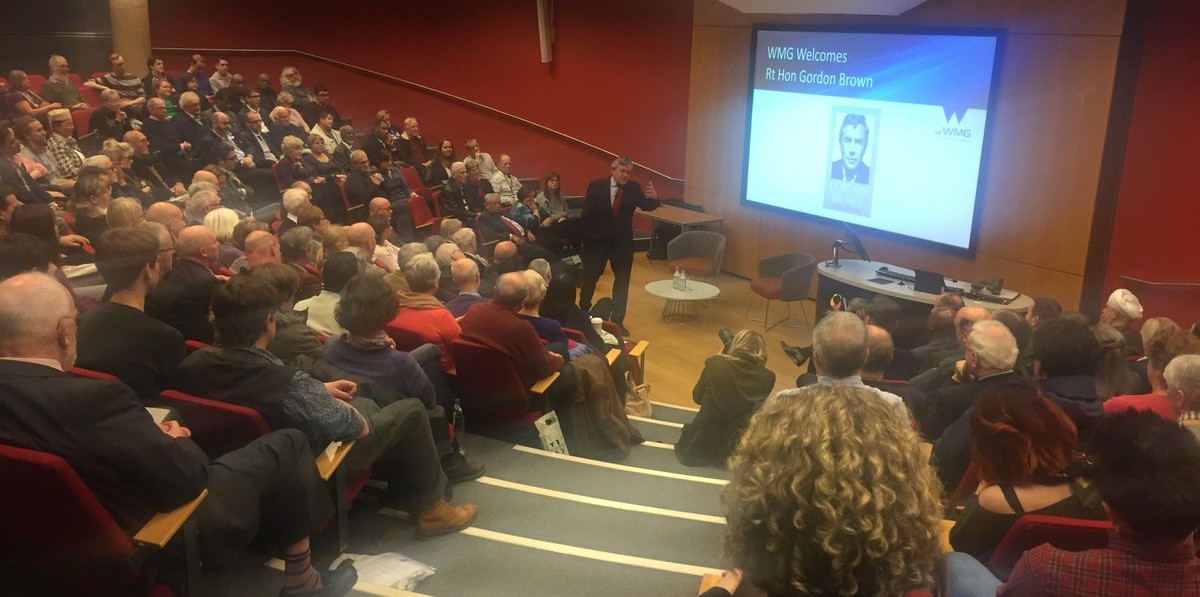Gordon Brown discusses the Labour Party and his new book at Warwick
Former British prime minister and Labour member Gordon Brown gave a speech at the WMG auditorium last week detailing his new book, My Life, Our Times.
The speech, which reflected on the current state of the Labour Party, began by addressing the three local MPs attending the event, Jim Cunningham of Coventry South, Geoffrey Robinson of Coventry North and the newly elected Labour MP for Warwick and Leamington, Matt Western.
Brown praised Western for possessing the “youth and fresh ideas” needed for parliament, with “great maturity” set to make him a great MP. One student remarked that this part of the speech reflected “a charismatic side to Brown that is usually overlooked.”
Addressing Robinson, Brown detailed that the two shared an important political history. Brown spoke of his regret when imposing his windfall profits levy on privatised utilities, in reaching for £5 billion instead of the £6 billion proposed by Robinson.
A charismatic side to Brown that is usually overlooked.
Whilst the speech focussed mainly on his book, Brown highlighted two key political issues in general relevant today – child poverty and tax havens. In his three years of government Brown claimed that he addressed child poverty as “the utmost priority.”
It is therefore no surprise that he pointed out the rising child poverty under our Tory government, stating that figures are now “higher than that of Thatcher’s government.”
In discussing tax havens, Brown displayed a great deal of regret. He suggested that we, the audience, were the ones being “forced to pick up the bill for the richest in [our] society, who buried their money away from taxes in foreign accounts.”
Brown avoided any mention of the current situation in the Labour party or Jeremy Corbyn, until the question was posed to him outright by an audience member. He referred to Corbyn as a “movement,” acknowledging his importance and influence. He added that there are certain steps that need to be taken in order to achieve success.
We are forced to pick up the bill for the richest in society, who buried their money away from taxes in foreign accounts.
Firstly, he emphasised the need for a re-evaluation of priorities and policy, an act that he did believe was occurring within the party. Secondly, Brown argued the financial support and implementation of these new priorities and policy needs to be considered by the party in a more practical fashion.
Finally, he said the party must address their ability to sell this message to the public. Brown suggested that in these final two areas, the current Labour leadership are failing.
Brown ended his speech with an interesting discussion of Chapter 21 of Anthony Burgess’ postwar dystopia, A Clockwork Orange, and referenced the chapter’s removal in all American publications in 1962. As this became the ending of the popular 1971 film, the story became one of a “spiral of chaos,” ending in despair and destruction, as opposed to the redemptive ending presented by Burgess.
He stated confidently that “our Chapter 21” was around the corner. This hopeful message of redemption was the same phrasing used by Brown last year in his speech at Coventry University.

Comments